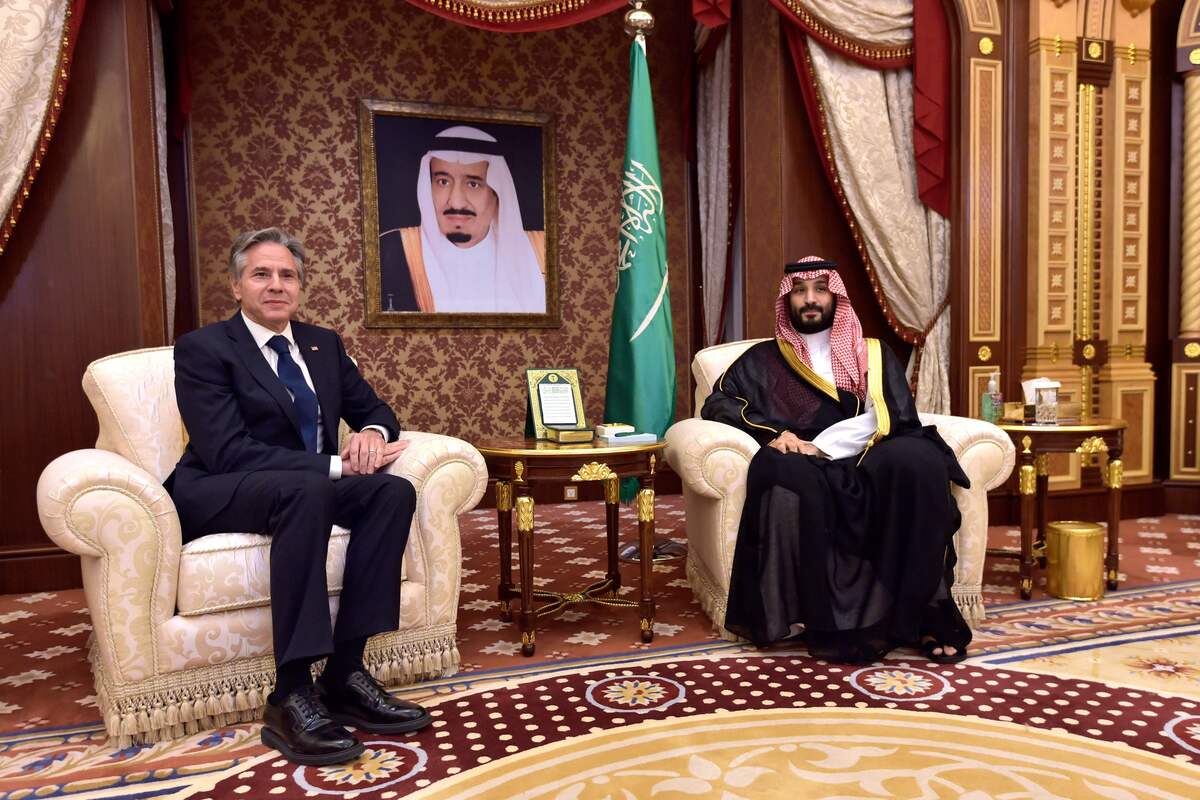Saudi Arabia has dropped its push for an ambitious defense treaty with the United States in exchange for normalizing relations with Israel and now wants a limited military cooperation agreement, two Saudi and four Western officials told Reuters. Saudi Arabia softened its stance on Palestinian statehood in a push for a broad bilateral security treaty earlier this year, and has told the United States it may accept Israel’s public commitment to a two-state solution to normalize relations.
But two Saudi and three Western sources said Saudi Crown Prince Mohammed bin Salman has made recognition of Israel conditional on it taking concrete steps toward establishing a Palestinian state, as popular anger in the kingdom and the region mounts over Israel’s war of extermination in the Gaza Strip. Western diplomats said Israeli Prime Minister Benjamin Netanyahu remains keen on normalizing relations with Saudi Arabia, seeing it as a historic achievement and a sign of growing acceptance in the Arab world. They added that Netanyahu faces overwhelming opposition at home to any concessions to the Palestinians after the October 7, 2023, Al-Aqsa Intifada, and knows that any gesture toward statehood could fragment his ruling coalition.
Riyadh and Washington hope to conclude a more modest defense agreement before President Joe Biden leaves the White House in January, the sources said. A full U.S.-Saudi treaty would need to be ratified by a two-thirds majority in the U.S. Senate, which would not be possible unless Riyadh recognizes Israel, the six sources said.
The agreement, currently under discussion, includes expanding joint military training and maneuvers to counter regional threats, particularly from Iran. The sources said the deal would strengthen partnerships between US and Saudi defense companies with safeguards to prevent cooperation with China. The agreement would boost Saudi investments in advanced technologies, particularly systems to counter drones. The US would increase its presence in Riyadh through training, logistical support, and cybersecurity, and could deploy a Patriot missile battalion to bolster missile defense and integrated deterrence. But it would fall short of a binding mutual defense treaty that would commit US forces to protecting the world’s largest oil exporter in the event of a foreign attack.
“Saudi Arabia will get a security agreement that allows for more military cooperation and U.S. arms sales, but not a defense treaty similar to the one with Japan or South Korea as was initially sought,” said Abdulaziz bin Saqr, head of the Riyadh-based Gulf Research Center.
Trump's Dilemma
But the picture is further complicated by the arrival of Donald Trump in the White House. Trump’s plan for resolving the Israeli-Palestinian conflict excludes any provisions for Palestinian statehood or sovereignty, but the president-elect is a close ally of the Saudi crown prince. Palestinian and some Arab officials fear that Trump and his son-in-law Jared Kushner, the architect of the “deal of the century” and also a close ally of the crown prince, could eventually persuade him to support the plan.
Diplomats said how the crown prince reconciles Saudi priorities with the changing diplomatic landscape will be pivotal, shaping his leadership and the future of the peace process. The current US administration has long hoped to reach an agreement on security guarantees before Biden leaves office in January, but many obstacles remain. A source familiar with the matter in Washington said there was reason to worry about whether there was enough time to reach an agreement.
The source noted that US officials are aware that the kingdom is still interested in formally confirming the guarantees it seeks, especially obtaining more advanced weapons, but they are not sure whether it prefers to implement this under Biden’s leadership or wait for Trump. “We continue to discuss and make efforts at various levels” with the Saudis, the US official said. The US National Security Council declined to comment when asked about efforts to reach an agreement based on providing security guarantees to Saudi Arabia.
Netanyahu’s office declined to comment when asked about the Saudi position on Palestinian statehood. A defense treaty that would give Saudi Arabia U.S. military protection in exchange for recognizing Israel could reshape the Middle East, bringing two bitter enemies closer together and tying Riyadh to Washington at a time when China is strengthening its ties in the region.
That allows the kingdom to bolster its security and fend off threats from Iran and its Houthi allies in Yemen, avoiding a repeat of the 2019 strikes on Saudi oil facilities that Riyadh and Washington blamed on Tehran. Iran has denied any role. A senior Saudi official said the treaty was 95 percent complete, but Riyadh chose to discuss a replacement because it could not be implemented without normalization with Israel.
Depending on the wording, a mini-cooperation agreement could be approved without going to Congress before Biden leaves office, two of the sources said. There are other hurdles in negotiations for a mutual defense treaty. For example, talks on civilian nuclear cooperation have stalled because Saudi Arabia has refused to sign a so-called 123 agreement with the United States because it would deny Riyadh the right to enrich nuclear fuel, the six sources said. Saudi objections to the human rights provisions have emerged as another area of contention, a Saudi source close to the talks told Reuters.
(Reuters, Al-Araby Al-Jadeed)







Share your opinion
Reuters: Saudi Arabia has abandoned a defense treaty with America in exchange for normalization with Israel